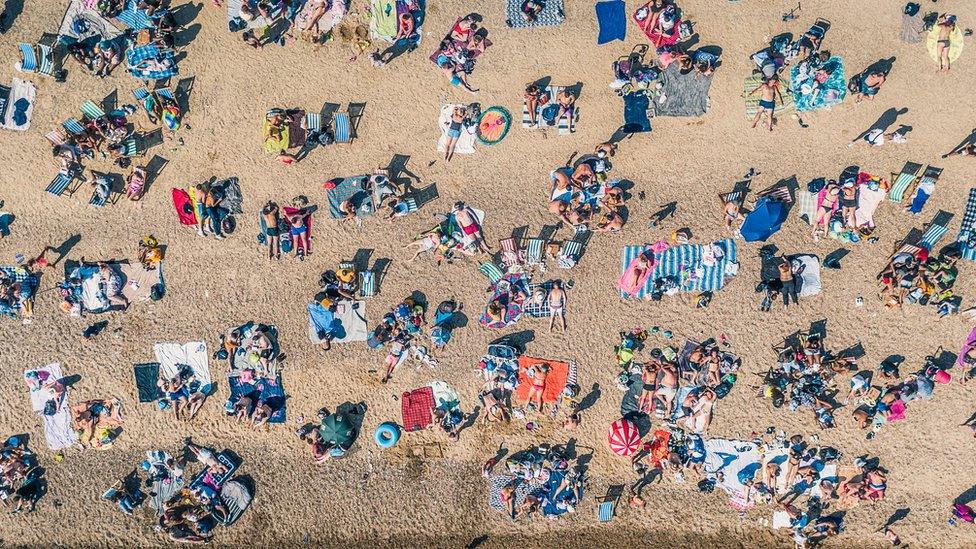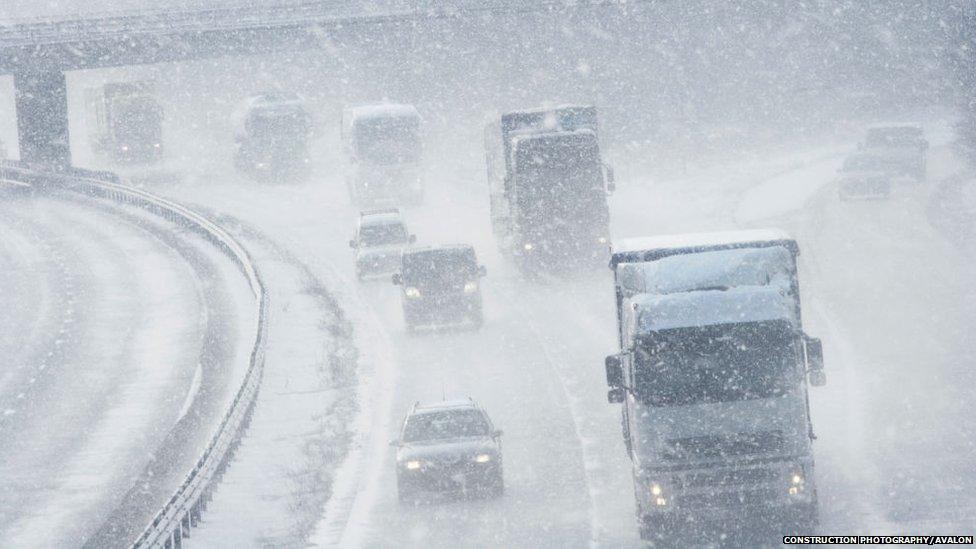El Niño and La Niña: What are they and how do they affect the weather?
- Published
- comments

Europe saw its hottest summer on record in 2022, but 2023 could get even hotter
Europe had the hottest summer ever recorded in 2022, which caused problems all over the world.
But scientists are saying that 2023 is only going to get hotter.
This is because a climate phenomenon that keeps temperatures down is coming to an end.
It's called La Niña, but what is it, and how does it affect how hot our summers are?
Read on to find out.
What is La Niña?
La Niña (which means 'the girl' in Spanish) occurs when water cools down more than usual in parts of the Pacific Ocean, between South America and Australia.

El Niño and La Niña are caused when sea temperatures rise in the Eastern Pacific
When the sea surface temperature drops by around 3-5 degrees Celsius, La Niña is declared.
This leads to cooler and drier weather on average.
What is El Niño?
El Niño (the boy) on the other hand, does the opposite - it makes global weather warmer.

El Niño makes the weather around the world warmer on average
It happens when water in the Eastern Pacific heats up more than normal, and creates unusually hot and stormy weather.
El Niño is declared when the water warms up by half a degree Celsius higher than the long term average.
What do El Niño and La Niña do to our weather?
These events occur every few years in a bit of an irregular pattern, and affect weather all over the world.
Global temperatures increase by about 0.2C during an El Niño episode, and fall about 0.2C during La Niña.
Weatherman Simon King explains how El Niño affects the weather
The hottest year on record, 2016, was an El Niño year.
Weirdly though, El Niño can cause us to have really cold winters here in the United Kingdom. 2009-2010 was the coldest winter in the UK for 31 years, since 1979, and that was during an El Niño.
Even though last summer was the hottest that Europe has ever had, it happened during a La Niña .

El Niño caused a bitterly cold winter in the UK in 2009
That's why scientists are worried that summer 2023 will be even hotter, as La Niña is coming to an end and an El Niño event is on the horizon.
Prof Adam Scaife from the Met Office said: "Global average temperature over the last three years has been at near record levels, but it would have been even higher without the cooling effects of a prolonged La Niña."
How often do these events happen?
There tends to be either an El Niño and La Niña episode every 2 to 7 years.
But they don't necessarily always go one after the other: La Niña events are less common than El Niño episodes.
- Published15 November 2023

- Published6 December 2022

